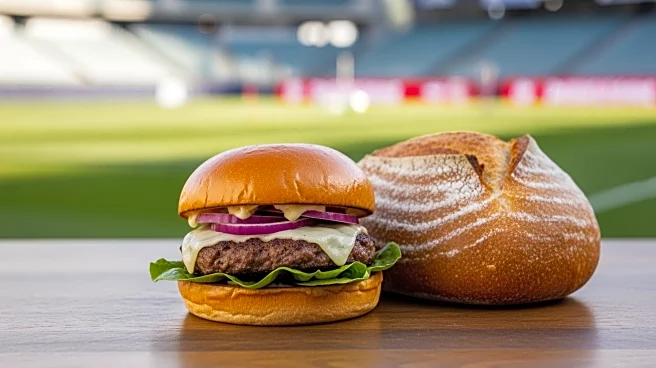What is the story about?
What's Happening?
Edible Brands, known for its Edible Arrangements stores, is leveraging its brick-and-mortar locations to enhance its delivery-centric business model. According to Matthew Walls, President and Chief Stores Officer, approximately 80% of their commerce is conducted digitally, with products typically delivered as gifts. The company is focusing on optimizing the remaining 20% of its business, which involves in-store purchases. Edible Brands operates both corporate-owned and franchised stores, which serve as fulfillment centers for e-commerce. The company is also expanding its Rōti chain of fast-casual restaurants, which follows a similar model. Site selection for these stores is crucial, with considerations for delivery convenience and customer accessibility. The company is applying AI and psychographics to analyze potential locations, aiming for high visibility and good access to delivery routes. Edible Brands is also redesigning its stores to create a more retail-focused environment, offering products like smoothies, cheesecake, and cookies.
Why It's Important?
The strategic expansion and optimization of Edible Brands' brick-and-mortar locations are significant for the retail and e-commerce sectors. By enhancing its physical presence, the company aims to improve customer experience and streamline delivery operations. This approach could set a precedent for other e-commerce businesses looking to integrate physical stores into their delivery models. The focus on site selection and store design reflects a broader trend in retail where companies are increasingly using data analytics to drive business decisions. The expansion of the Rōti chain also highlights the growing demand for fast-casual dining options, which could impact the restaurant industry by encouraging similar models. Overall, Edible Brands' strategy may influence how businesses balance digital and physical commerce, potentially leading to increased investment in brick-and-mortar locations.
What's Next?
Edible Brands plans to accelerate growth for both Edible Arrangements and Rōti restaurants. The company is exploring new locations, particularly in suburban areas, to expand its reach beyond urban centers. This expansion could lead to increased competition in the fast-casual dining sector, prompting other businesses to adopt similar strategies. Additionally, Edible Brands is focusing on store design to reduce friction in customer interactions and improve the overall shopping experience. As the company continues to refine its model, it may face challenges related to real estate acquisition and construction, particularly for franchisees. The success of these initiatives could influence future decisions regarding store openings and operational strategies.
Beyond the Headlines
Edible Brands' approach to integrating local design elements into its stores reflects a growing trend in retail to create community-centric environments. This strategy not only enhances customer engagement but also supports local economies by incorporating regional aesthetics. The emphasis on team member spaces within store designs highlights the importance of employee well-being in retail operations. By prioritizing areas for staff to relax and regroup, Edible Brands is addressing a critical aspect of customer service—ensuring that employees can perform at their best. These design principles may encourage other businesses to consider similar approaches, potentially leading to improved employee satisfaction and customer service across the industry.

















